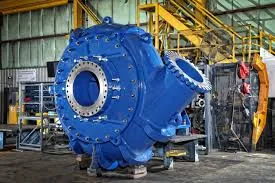Serbian
- Afrikaans
- Albanian
- Amharic
- Arabic
- Armenian
- Azerbaijani
- Basque
- Belarusian
- Bengali
- Bosnian
- Bulgarian
- Catalan
- Cebuano
- Corsican
- Croatian
- Czech
- Danish
- Dutch
- English
- Esperanto
- Estonian
- Finnish
- French
- Frisian
- Galician
- Georgian
- German
- Greek
- Gujarati
- Haitian Creole
- hausa
- hawaiian
- Hebrew
- Hindi
- Miao
- Hungarian
- Icelandic
- igbo
- Indonesian
- irish
- Italian
- Japanese
- Javanese
- Kannada
- kazakh
- Khmer
- Rwandese
- Korean
- Kurdish
- Kyrgyz
- Lao
- Latin
- Latvian
- Lithuanian
- Luxembourgish
- Macedonian
- Malgashi
- Malay
- Malayalam
- Maltese
- Maori
- Marathi
- Mongolian
- Myanmar
- Nepali
- Norwegian
- Norwegian
- Occitan
- Pashto
- Persian
- Polish
- Portuguese
- Punjabi
- Romanian
- Russian
- Samoan
- Scottish Gaelic
- Serbian
- Sesotho
- Shona
- Sindhi
- Sinhala
- Slovak
- Slovenian
- Somali
- Spanish
- Sundanese
- Swahili
- Swedish
- Tagalog
- Tajik
- Tamil
- Tatar
- Telugu
- Thai
- Turkish
- Turkmen
- Ukrainian
- Urdu
- Uighur
- Uzbek
- Vietnamese
- Welsh
- Bantu
- Yiddish
- Yoruba
- Zulu
Telephone: +86 13120555503
Email: frank@cypump.com
окт . 17, 2024 19:59 Back to list
Efficient Wastewater Pump Solutions for Effective Water Management Systems
Understanding Wastewater Pumps Essential Components for Efficient Waste Management
Wastewater pumps play a crucial role in modern sewage and wastewater management systems. As urbanization continues to increase and populations grow, the need for effective wastewater treatment becomes more pressing. This article delves into the significance of wastewater pumps, their types, working principles, and their impact on environmental sustainability.
What is Wastewater?
Wastewater is any water that has been adversely affected in quality by human influence. This includes water from domestic, industrial, and agricultural sources. It typically contains a mixture of water and various waste materials, including organic matter, chemicals, and pathogens. Effective management of wastewater is critical to prevent pollution, protect public health, and preserve the environment.
The Role of Wastewater Pumps
Wastewater pumps are specifically designed to move sewage and wastewater from one point to another. They are essential in both residential and industrial applications. Key functions of wastewater pumps include
1. Transporting Waste Wastewater pumps remove waste from homes and industries to treatment facilities. In rural areas or where gravity cannot be used as a force for movement, these pumps become even more crucial.
2. Preventing Backflow Pumps help mitigate the risk of backflow, which can cause significant health hazards and environmental problems.
Types of Wastewater Pumps
Understanding the different types of wastewater pumps and their applications is essential for effective waste management
1. Submersible Pumps These pumps are designed to operate while submerged in the wastewater. They are ideal for areas with high water levels and are often used in sump pits and lift stations.
waste water pumps

2. Centrifugal Pumps Often used for moving large volumes of water, centrifugal pumps use rotational energy to move water. They're commonly seen in municipal water systems and can handle various types of wastewater.
3. Positive Displacement Pumps These pumps work by trapping a fixed volume of water and forcing it through the discharge pipe. They are effective at pumping thick sludges and are often used in industrial settings.
4. Progressing Cavity Pumps Known for their ability to handle viscous fluids, these pumps are used for their efficiency in moving thick and semi-solid waste materials.
Working Principles
The operation of wastewater pumps is based on fundamental hydraulic principles. For submersible pumps, an electric motor drives an impeller or rotor submerged in the wastewater. The rotation of the impeller creates a vacuum that draws in water, and the centrifugal force pushes it out through the discharge pipe. Centrifugal pumps operate on similar principles, but the energy is imparted differently, utilizing rotating components to create flow.
Importance in Environmental Sustainability
Wastewater pumps are integral to sustainable waste management systems. They help ensure that wastewater is effectively transported to treatment facilities, where it can be processed and returned safely to the environment. By enabling the recycling of water and preventing pollution, these pumps contribute significantly to conserving freshwater resources and protecting ecosystems.
Moreover, advancements in pump technology, such as the use of energy-efficient motors and smart control systems, are leading to reduced energy consumption in wastewater management processes. This not only lowers operational costs but also minimizes the carbon footprint associated with wastewater treatment.
Challenges and Considerations
While wastewater pumps are vital, they also face challenges. Plugging and wear from abrasive materials in the wastewater can lead to operational failures. Regular maintenance and inspection are necessary to ensure reliability. Additionally, legislation and growing concerns about contaminants in wastewater require that pump systems are continually updated and compliant with environmental standards.
Conclusion
In conclusion, wastewater pumps are essential components of effective wastewater management systems. They facilitate the safe transport and treatment of wastewater, safeguarding public health and the environment. As technology continues to advance, it is crucial to focus on innovative solutions and sustainable practices that enhance the efficiency of wastewater pumping systems. Investing in efficient wastewater pumps not only pays dividends in operational reliability but also significantly contributes to a sustainable future.
-
Heavy-Duty Mining Sludge Pumps - Wear-Resistant Slurry Handling
NewsAug.02,2025
-
Horizontal Split Case Pump with GPT-4 Turbo | High Efficiency
NewsAug.01,2025
-
ISG Series Pipeline Pump - Chi Yuan Pumps | High Efficiency, Durable Design
NewsAug.01,2025
-
Advanced Flue Gas Desulfurization Pump with GPT-4 Turbo | Durable & Efficient
NewsJul.31,2025
-
ISG Series Vertical Pipeline Pump - Chi Yuan Pumps | Advanced Hydraulic Design&Durable Construction
NewsJul.31,2025
-
ISG Series Vertical Pipeline Pump - Chi Yuan Pumps | Energy Efficient & Low Noise
NewsJul.31,2025










